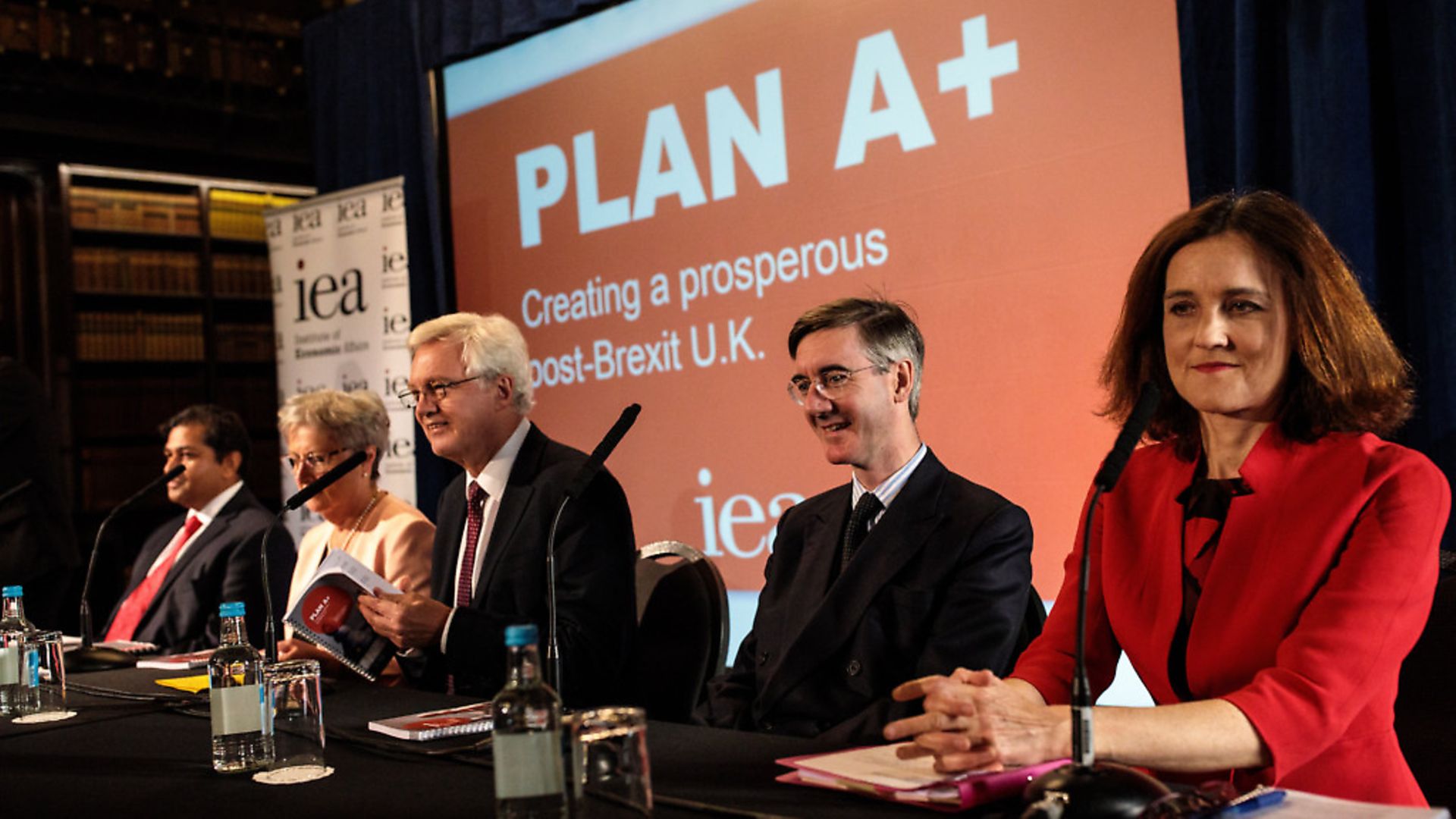
Former Conservative party adviser BARNABY TOWNS says that the Brexiteers’ free trade fantasy and ideology belongs back in the Victorian age.
As the Article 50 clock counts down to March 29th, the risk of a ‘no deal’ exit for the UK from the EU rises — absent parliamentary intervention most readily available via the amendments drafted by Labour MP Yvette Cooper and Tory MP Dominic Grieve. Slamming such moves as ‘Project Fear’ nationalist Brexiteers increasingly warm to ‘trading on World Trade Organization’ terms despite disparaging this in the referendum.
The WTO is an international forum headquartered in Geneva, where 164 governments negotiate trade liberalisation rules and can solve trade disputes. Founded in 1995, the WTO is the successor to the 1948 General Agreement on Tariffs and Trade, a 23-nation agreement born out of a desire to avoid the beggar-thy-neighbour protectionism that bedevilled international trade, stability and peace in the interwar years. The average tariff level of GATT nations in 1947 was 22%, compared to 5% at the WTO’s founding.
WTO rules require ‘schedules of concessions’ by which members make specific promises on tariffs and commitments on market access for services. The UK is a WTO member, as are all EU member states. However, the EU speaks on behalf of its 28-member states in all WTO matters except the Secretariat’s budget and administration.
Many misconceptions muddy the waters around the discussion of what ‘trading on WTO terms’ means, starting with what would be lost by leaving the EU’s internal market and customs union. The European Economic Area denotes the single market, which is the world’s largest transnational free trade area with over half a billion people and a GDP worth $20 trillion—$40,000 per person. EU membership provides the UK with an additional 36 free trade agreements with non-EU countries, including Norway, Switzerland, South Korea, Mexico, Canada and Japan; a further 48 deals partially in place; and some 22 pending ratification including with Singapore and Vietnam.
Trading purely on WTO terms involves turning our back on all of this preferential access, reducing UK GDP by 10.7% over 15 years, according to the government’s own estimates—more economic damage than any other Brexit option. This would require an additional £81 billion net government borrowing each year—£1.25 billion each week—by 2033-34 to maintain current spending levels, a King’s College, London study found.
Brexiteer nationalists have three main arguments. First, that abandoning the EU’s customs union makes it possible to sign new trade pacts with other countries, in place of those that the UK enjoys through EU membership. Second, that we could choose not to apply trade barriers to former EU partners, encouraging them to do likewise. And third that most world trade is conducted on WTO terms, so the UK hasn’t much to lose.
MORE: Brexiteer advocating World Trade Organisation rules cannot name one rule
MORE: Brexiteer rinsed after failing miserably to defend no-deal Brexit
Sadly, reality doesn’t bear out these fantasies. Quite simply, states trade most with their neighbours; mostly trade via free trade agreements; and, with very few exceptions belong to regional trade blocs. Additionally, the EU allows the UK to benefit from its internal free trade area and external deals—the EU has more free trade agreements than the USA and China combined—while being protected from having terms imposed by the USA or China, whose markets and populations dwarf the UK’s.
Trying to minimise the impact of no free trade deal with our largest trading partner—responsible for half of our trade—by arguing that the UK could offer zero tariffs and checks on EU goods won’t wash. WTO Most Favoured Nation rules require any such policy to be applied to all members. No wonder the no-dealers’ favourite economist, Patrick Minford, says: ‘Over time…it seems likely that we would mostly eliminate manufacturing.’ Agriculture also would be flooded with cheap imports. Ironically, the UK would become a much less attractive proposition for those global-UK trade deals Brexiteers want, as other nations would already enjoy tariff-free access to our market.
And what of services, which comprise 80% of the UK’s economy and are most vulnerable to non-tariff barriers—national regulations—rather than tariffs, quotas and subsidies? Under WTO rules, members may freely discriminate against UK services, provided they treat others the same way—far inferior to the EU’s giant level playing-field.
Eschewing trade on pure WTO terms, the USA trades with the EU through 135 Mutual Recognition Agreements; China has 65. The UK would be best served striking trade deals via the EU, providing greater leverage vis-à-vis these economic powerhouses.
Let’s leave unilateral free trade fantasy and ideology where they belong: the Victorian era of unparalleled British industrial and imperial power. The naive nostalgia of Empire 2.0 won’t work in this century.
• Barnaby Towns is a former Conservative party special adviser









